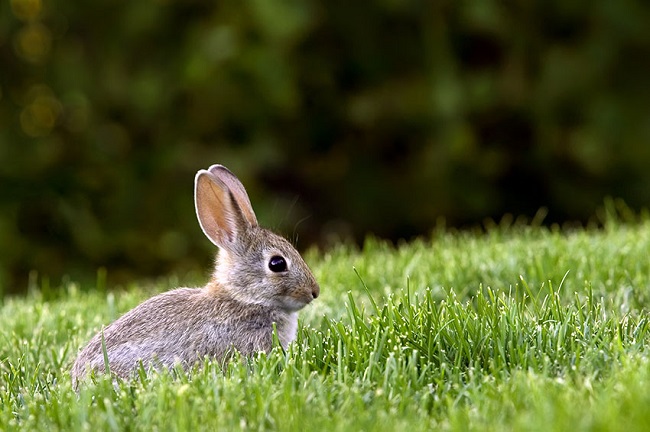Rabbits, known for their playful nature and soft, cuddly appearance, have dietary habits that are vital for their well-being and longevity. As herbivores, their diet consists solely of plant-based food.
This article delves into the eating habits of rabbits, their nutritional needs, and the impact diet has on their health.

Herbivores – What Does It Mean for Rabbits?
Herbivores are animals that eat plants and plant-based foods exclusively. For rabbits, this means their diet revolves around grass, hay, vegetables, and some fruits.
Read Also:
They have a unique digestive system designed to extract nutrients from plant matter, which involves a process known as hindgut fermentation.
The Ideal Rabbit Diet
A rabbit’s diet should be rich in fiber and include a variety of fresh, clean foods to meet their nutritional requirements. Here’s a basic breakdown:
Hay and Grass
This should make up the bulk of a rabbit’s diet, as it is critical for maintaining dental and digestive health. Timothy hay, orchard grass, or meadow hay are good choices.
Vegetables
Rabbits enjoy fresh, leafy greens like romaine lettuce, kale, and spinach. These should make up a smaller portion of their diet compared to hay.
Fruits and Treats
Fruits can be given in small amounts as treats due to their higher sugar content. Apple, pear, or peach are good options, but remember to remove any seeds.
Health Concerns Related to Diet
A rabbit’s diet directly impacts their health. Inadequate fiber can lead to gastrointestinal problems, one of the most common health issues in rabbits. Overfeeding sugary fruits or commercial treats can lead to obesity and dental problems.
Feeding Practices
Rabbits should have access to fresh hay at all times, as constant chewing aids in dental health and digestion. Fresh water should always be available, and fresh foods should be introduced slowly to avoid upsetting their sensitive digestive systems.
Understanding Rabbit Nutrition
Rabbits require a balance of vitamins, minerals, and other nutrients to stay healthy. A varied diet of high-quality hay, fresh vegetables, and limited fruits can usually provide this.
However, young, old, or sick rabbits may have specific dietary needs, so it’s always best to consult with a vet.
Dietary Supplements for Rabbits
Sometimes, rabbits may need dietary supplements to ensure they are receiving all necessary nutrients. While a well-balanced diet can typically provide all the required vitamins and minerals, certain situations might demand extra supplementation.
For instance, rabbits that are not exposed to enough sunlight may need a vitamin D supplement. Similarly, nursing or pregnant rabbits might require calcium supplements.
It’s crucial to consult with a veterinarian before starting any supplementation regimen to avoid potential health risks.
How to Recognize a Healthy Rabbit Diet
Monitoring your rabbit’s eating habits and output can help you gauge their dietary health. A rabbit on a healthy diet will exhibit:
- A good appetite for hay and greens.
- Regularly produced droppings that are uniform in size and shape.
- Healthy weight maintenance.
- A clean and shiny coat.
- Good dental health, free from overgrown teeth.
Prohibited Foods for Rabbits
While rabbits are herbivores, not all plant-based foods are safe for them. Certain foods can be harmful, such as:
- Legumes: Foods like beans and peas can cause bloating and gas in rabbits.
- Certain vegetables: Veggies like potatoes and onions can be toxic to rabbits.
- High-starch or high-sugar foods: Foods like bread, crackers, or sugary treats can lead to obesity and digestive problems.
- Chocolate and caffeine: These are toxic to most pets, including rabbits.
Rabbits in the Wild vs. Pet Rabbits: Dietary Differences
While both wild and pet rabbits are herbivores, their diets can differ due to availability of foods. Wild rabbits primarily consume grass and hay, along with available fruits, vegetables, and herbs. Pet rabbits, on the other hand, rely on their caretakers for food, so their diets can be more varied.
Read Also:
Conclusion
Rabbits, as herbivores, have a distinctive dietary pattern shaped by evolution and adaptation. Understanding their needs can ensure your pet rabbit leads a healthy, happy life.
Remember to consult with a vet or a rabbit nutrition expert if you have any concerns about your rabbit’s diet.
























